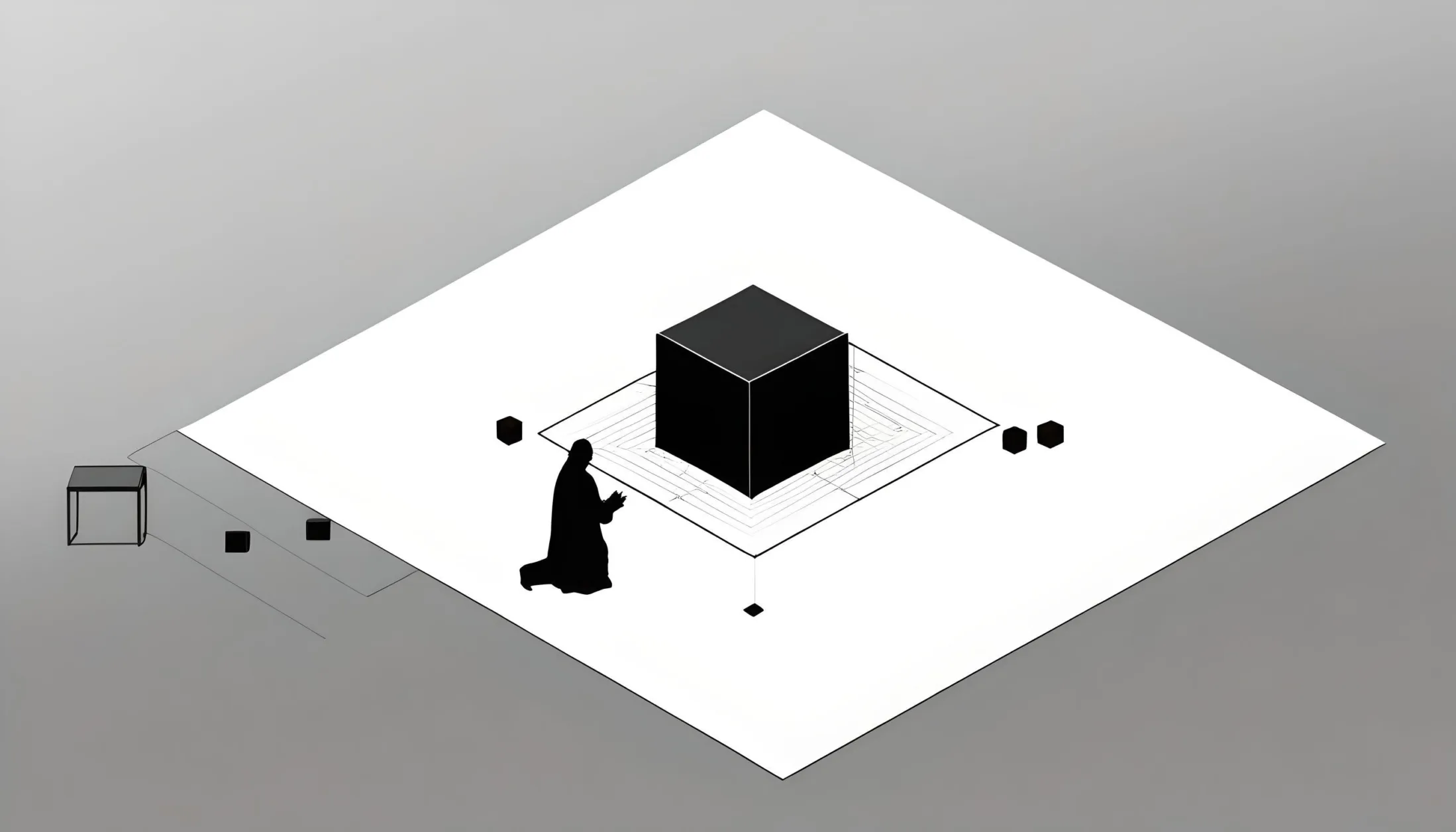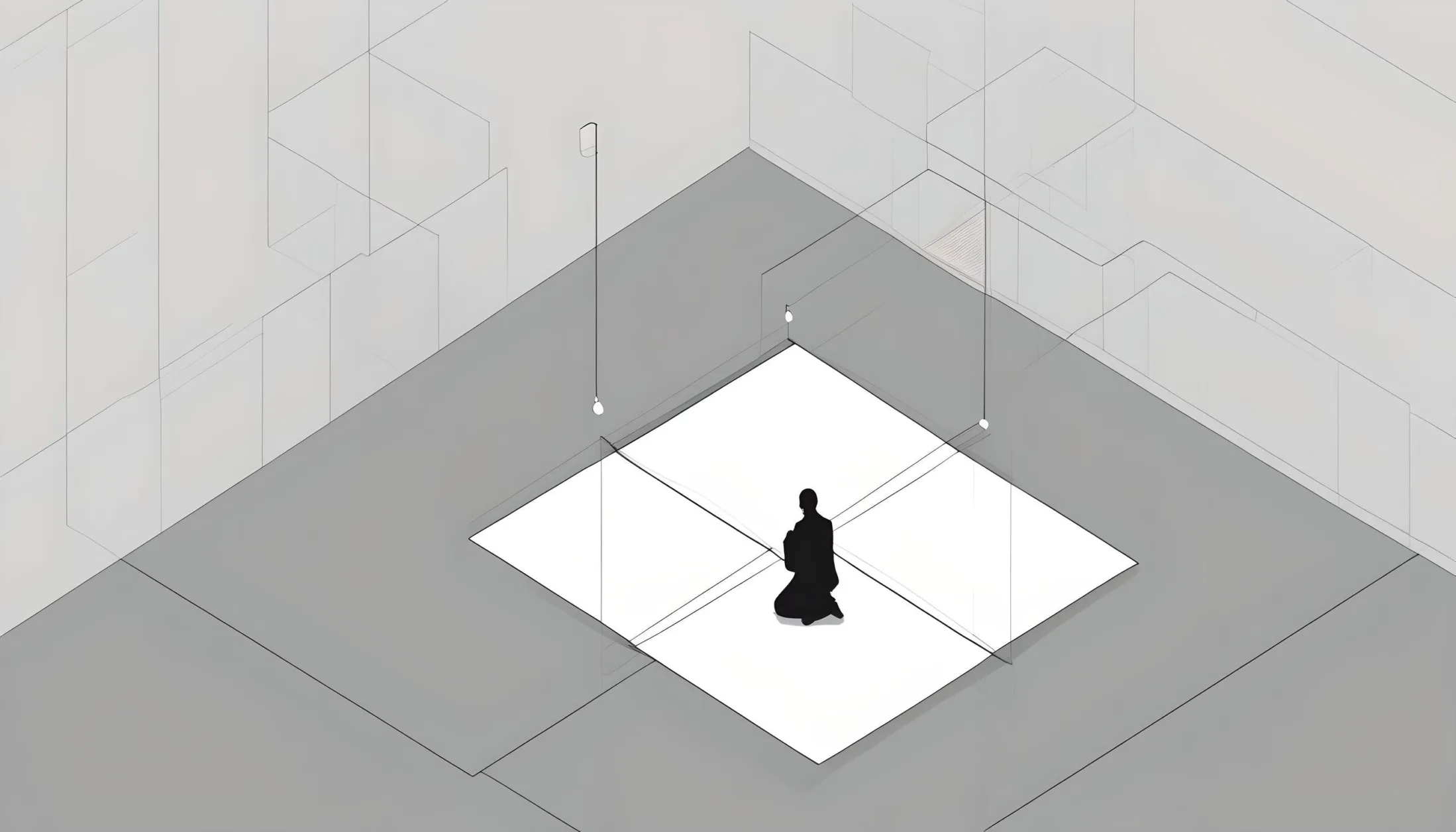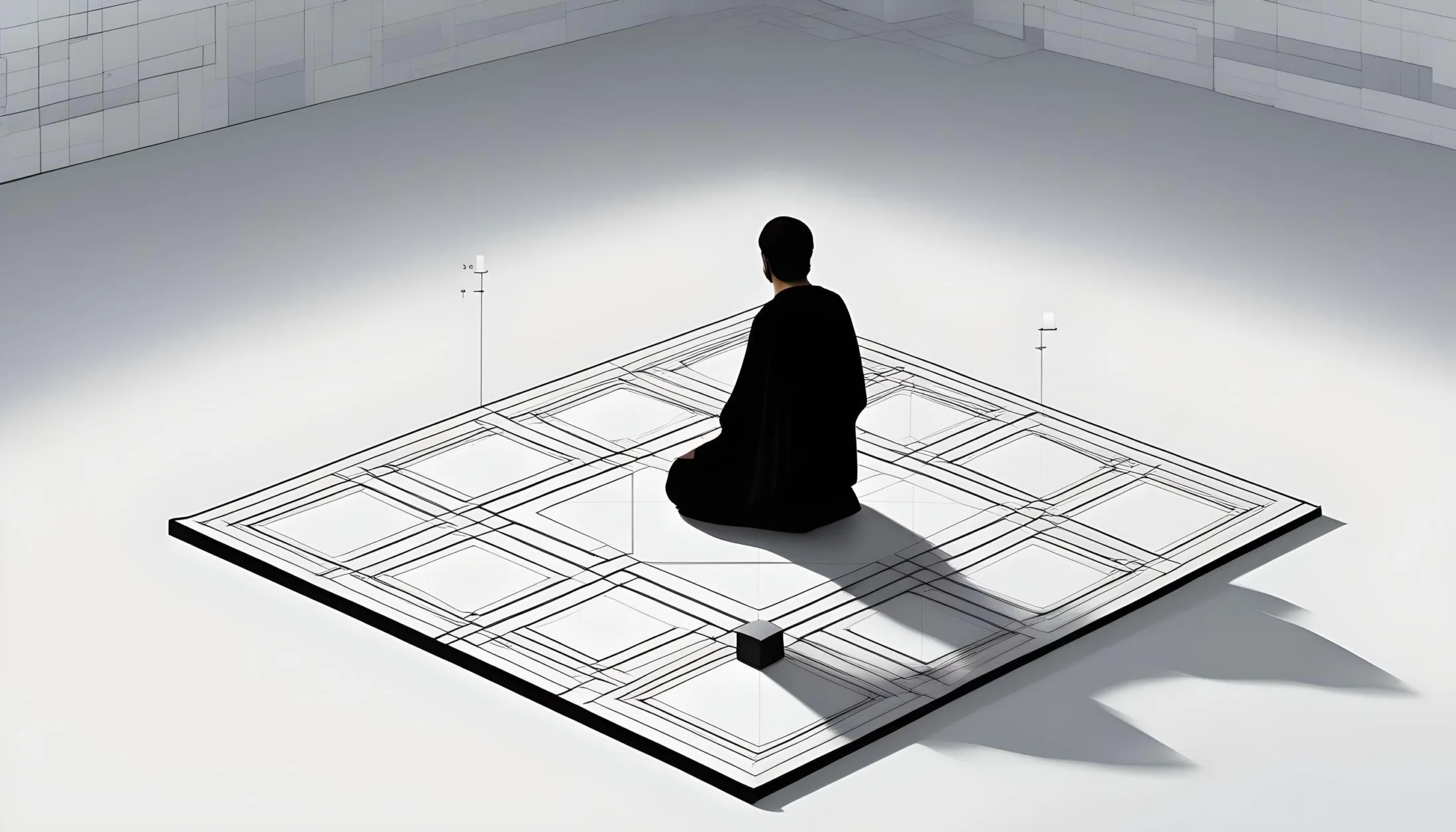If the deviation from the Qibla is slight, it does not invalidate the prayer.
If The Direction Is Slightly Wrong

Slight deviations can occur when someone is slightly confused about the precise direction. Those far from the Kaaba must face its general direction rather than precisely.
- Hadith of Abu Hurayrah: “Whatever is between the east and the west is the Qiblah.” (At-Tirmidhi, 342; Ibn Majah, 1011, authenticated by Al-Albani in Al-Irwa’)
- Explanation by As-San’ani: This hadith indicates that facing the general direction of the Qiblah suffices when one cannot see the Ka’bah. (Subul As-Salam, 1/260)
- Hadith of Abu Ayyub: The Prophet (peace and blessings be upon him) said, “If you need to relieve yourself, then do not face the Qiblah or turn your back towards it, whether you are urinating or defecating, rather face to the east or to the west.” (Al-Bukhari, 144; Muslim, 264)
If The Direction Is Very Wrong

If the deviation is significant, such as praying towards the east when the Qibla is towards the west, the prayers are still valid if the individual made a sincere effort to determine the correct direction.
This is based on the principle that a person who strives to do their best has fulfilled their duty.
- Statement of Shaykh Al-Islam: Facing any direction other than the east or the west means one is either facing the Qiblah or turning one’s back towards it. This was the consensus of the Companions.
- Umar and Uthman’s Consensus: “Whatever is between the east and the west is the Qiblah except at the House.” – Umar. Uthman mentioned it is hard to make a mistake in prayer direction between the east and the west unless done deliberately.
- Shaykh Ibn ‘Uthaymin’s Explanation: The matter is broad in scope, and slight deviations are acceptable. (Ash-Sharh Al-Mumti’, 2/273)
If The Direction Is Wrong Based on Trusted Source

If you prayed in a completely wrong direction based on trusted information, the prayer is still valid. This applies if you relied on someone who seemed knowledgeable about the Qiblah’s direction and later discovered it was incorrect.
- Qur’an: “So keep your duty to Allah and fear Him as much as you can.” (At-Taghabun 64:16)
- Fatawa Al-Lajnah Ad-Da’imah: “If a worshipper does his best to figure out the direction of the Qiblah and prays, then he finds out that he was mistaken, his prayer is still valid.” (6/314)
- Fatawa Ash-Shaykh Ibn Baz: If a person does their best to determine the Qiblah’s direction and later finds out it was wrong, they should continue according to the new estimate, and the previous prayers are valid. (10/421)
Slight deviations from the Qiblah do not invalidate the prayer. Even if you prayed in the completely wrong direction, your prayer remains valid if you made a sincere effort to determine the Qiblah. This flexibility ensures that worshippers are not burdened excessively and acknowledges human error.
And Allah knows best.




 WhatsApp Channel
WhatsApp Channel
 Instagram
Instagram
 Facebook
Facebook
 X (Twitter)
X (Twitter)